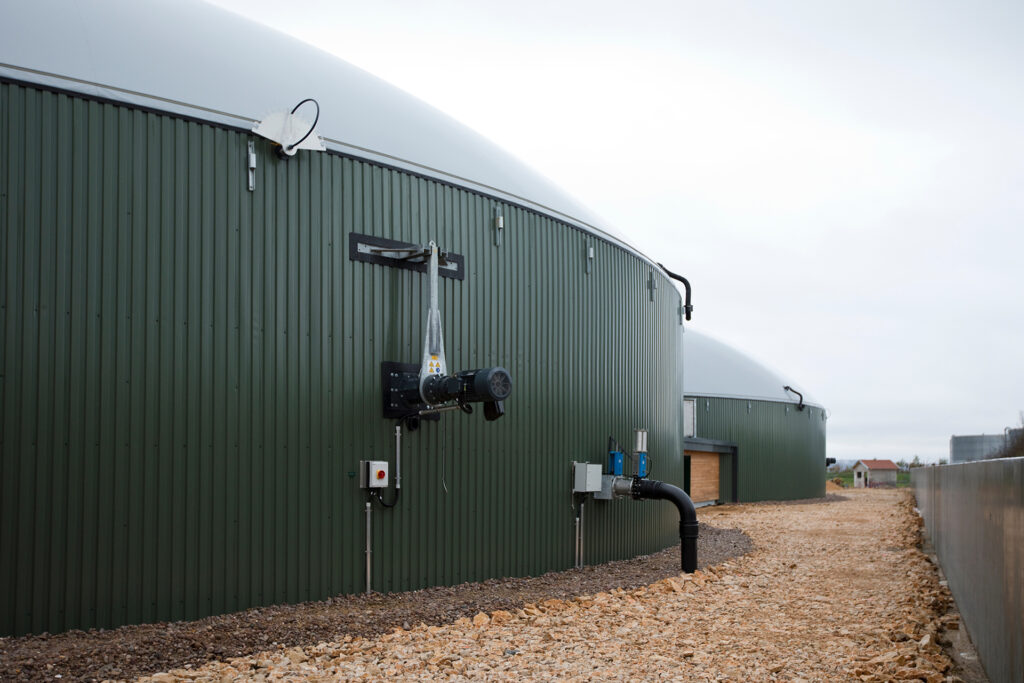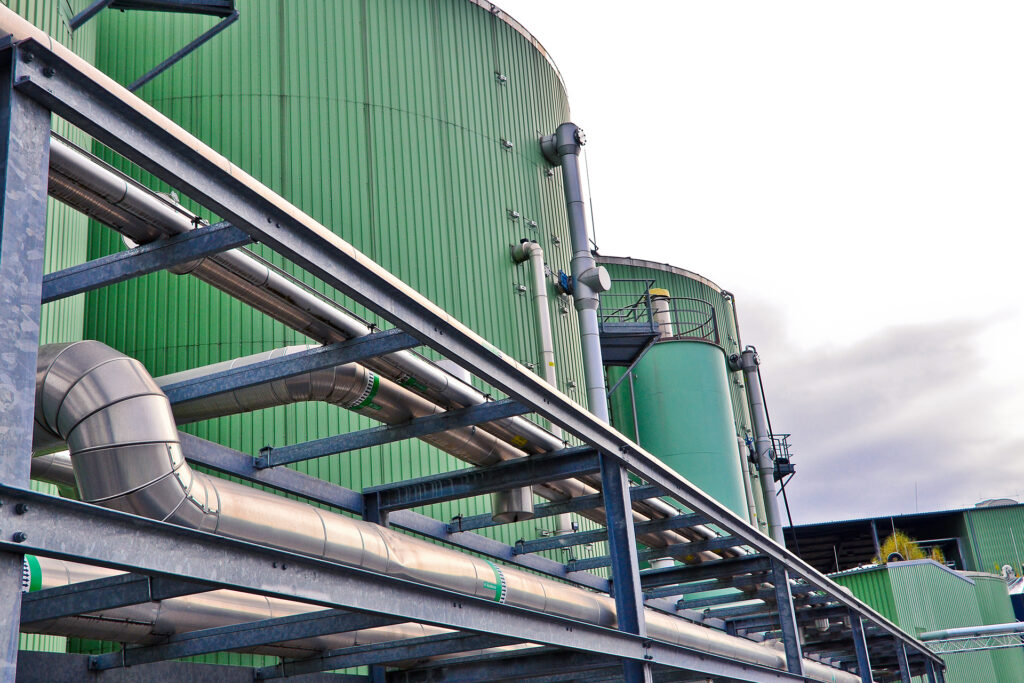Anaerobic digestion
Anaerobic digestion is a biological process during which microorganisms digest organic waste such as food waste, farm manure, or sewage sludge, and turn it into biogas and biological fertiliser. Biogas from anaerobic digestion is an important source of renewable energy. There are currently more than 600 operational anaerobic digestion plants in the UK, and their number is set to grow significantly in the years to come. Therefore, anaerobic digestion is a key green technology that is well-positioned to deliver immediate action on climate change and to contribute towards reaching Net Zero targets.

CreChar®’s benefits for anaerobic digestion
Anaerobic digestion plants face multiple challenges, including:
- Process instability: Changes in operational conditions or feedstock can lead to process instability or even complete failure.
- Low performance: Inefficiencies within the anaerobic digestion process can result in low biogas yields and reduced revenue.
Hence, anaerobic digestion plant operators spend a lot of time and money looking for innovative solutions to overcome these problems.
This is where CreChar® can help: by stabilising the anaerobic digestion process and increasing biogas yields by up to 15%, it helps biogas plants to consistently operate at their full potential.

